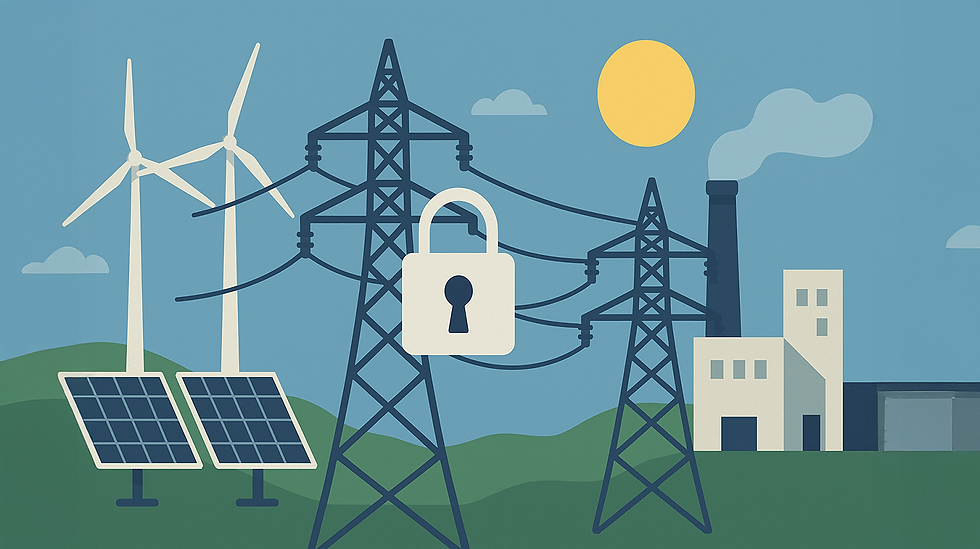Questions and Answers on International Ocean Governance
- Ye Jeong Kim
- Jun 11, 2022
- 3 min read

Why a new agenda on International Ocean Governance and what is in it?
The Joint communication on the renewed EU agenda on International Ocean Governance (IOG) updates the 2016 Joint Communication and strengthens the EU's commitment to safe, secure, clean, healthy and sustainably managed ocean. The new agenda reflects a number of significant global developments since 2016 such as: the urgent need to act on the triple crisis of climate, biodiversity and pollution; the more and more recognised role of the ocean in our lives, but also the profound changes happening to it due to climate change but also unsustainable human activities at sea; the need to better protect the ocean as one of the biggest sources of life and biodiversity on Earth; the increased focus on food security, as well as maritime security, which has come to the fore with Russia's unprovoked aggression against Ukraine.
The new International Ocean Governance agenda sets key EU priorities: to halt and reverse the loss of marine biodiversity, fight climate change and marine pollution for a healthy ocean, protect the seabed from harmful practices, ensure a sustainable blue economy and build up ocean knowledge, ensure security and safety at sea and a compliance with international rules and standards.
How will the new agenda on International Ocean Governance address the impacts of climate change and pollution on the ocean?
The ocean and climate change are closely intertwined: the ocean and its ecosystems are essential to regulate the climate and are at the same time hugely impacted by climate change. Ocean and climate actions must therefore go hand in hand. A positive step to this end is the UNFCCC decision made at COP26 in Glasgow to hold an annual dialogue on the ocean and climate change to strengthen ocean climate change mitigation and adaptation action.
The UN's Intergovernmental Panel on Climate Change (IPCC) raised the alarm on the impacts of climate change on the ocean. The absorption of carbon dioxide (25% of the human emissions of CO2) and extra heat (90% of the world's extra heat resulting from the greenhouse effect) causes ocean acidification and warming, which leads to sea level rise, extreme weather conditions, coral bleaching, stratification, deoxygenation, dead zones and changes in biological productivity and to the distribution of species and habitats. It emphasised the need to sharply reduce greenhouse gas emissions and take sustained and robust adaptation action. It is essential to combine action in all areas, ocean and land, while taking a coordinated approach to address interconnected issues of climate change, biodiversity loss and pollution.
The EU has anchored climate neutrality by 2050 into its law, in line with the Paris Agreement, and is committed to reduce its greenhouse gas emissions from maritime activities and to make continued progress in climate adaptation. The Commission proposed a range of measures to ensure that EU maritime transport contributes to reaching this goal. This includes a new standard on GHG intensity of energy used onboard ships (FuelEU Maritime), the extension of the EU Emissions Trading System (ETS) to maritime transport, and a revision of existing directives on energy taxation, alternative fuel infrastructures and renewable energy. Globally, a regulatory framework on the energy efficiency of new ships is in place and energy efficiency measures for existing ships will enter into force in November 2022. The EU will continue decarbonising the fishing sector to reduce the dependency on fossil fuels, including by exploring mitigation measures and fishing strategies and gears that reduce emissions and improve energy use efficiency.
This has become even more important in the context of the current war in Ukraine. Nature-based solutions can also provide climate change mitigation and adaptation by increasing carbon uptake and storage, reducing coastal risks and by providing multiple other benefits such as better water quality and increased resilience of ecosystems and communities. The EU is committed to stopping pollution of all kinds, notably from land-based sources to sea. Marine plastic pollution has increased tenfold since 1980 and needs a global response. Since the adoption of its Plastics Strategy in 2018, the EU has been a driving force in tackling plastic pollution internationally through its diplomatic efforts, and within the Union. It will actively engage in the global negotiations for an ambitious legally binding Global Plastic Agreement by 2024, as agreed at UNEA5, and will continue working towards that end.
What tools will the EU use to strengthen international ocean governance?
The ocean requires a collective approach, based on the provisions of international law with the United Nations Convention on the Law of the Sea (UNCLOS) at its core. The EU pursues partnerships and alliances with third countries, multilateral and regional organisations, and non-state actors such as NGOs, economic operators, scientific community and civil society at large. It does so by means of regional and bilateral dialogues, ocean-related development cooperation, specific outreach and demarches, coalition-building on key priorities and (co)-hosting multi-stakeholder global events to further mobilise and sustain the momentum for global action.



Comments